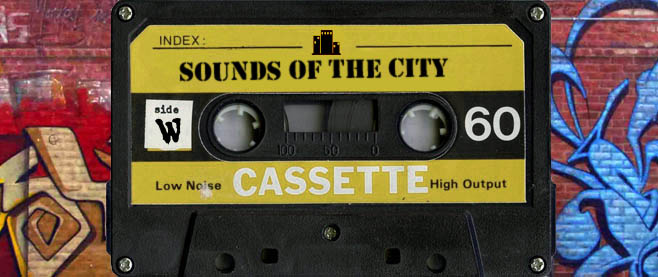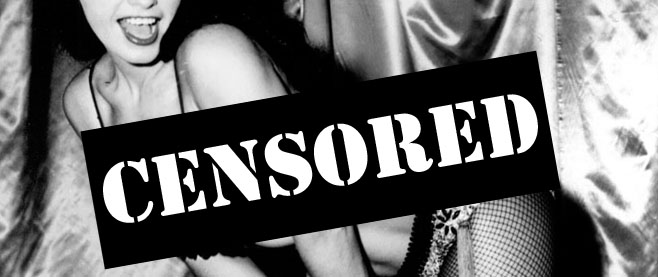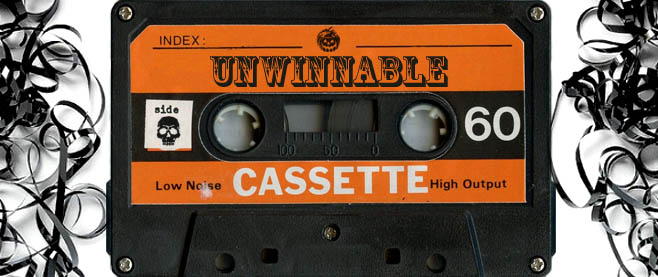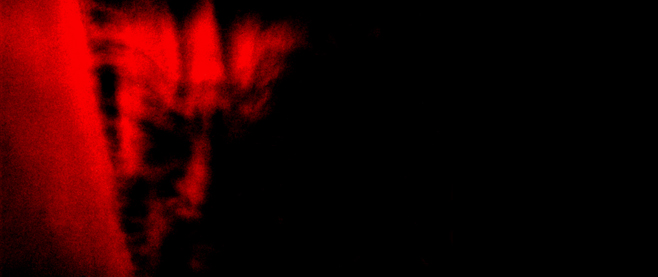
Unmixable: Sounds of the City
The City. For some, it’s a romantic ideal of big ideas, big dreams and big living. City of Lights. City of Angels. City of Dreams. For others it is a cesspool. A place associated with detritus, depravity and desperation. City of Sin. Naked City. Both sides are sources of inspiration for art, for video games and for music.
Join us for 100 minutes of music about the City. The good and the bad. The highs and the lows. The light and the dark.
[wpcol_1half id=”” class=”” style=””]
Tracks
Selection from The Warriors
“Baseball Furies Chase” – Barry De Vorzon
“Detroit Rock City” – KISS
“Los Angeles” – X
“Dallas” – The Tah Dahs
“Viva Las Vegas” – Dead Kennedys
“Hollywood Babylon” – The Misfits
“Hello L.A., Bye Bye Birmingham” – Blue Cheer
“Guns of Brixton” – The Clash
“Tupelo” – Nick Cave and the Bad Seeds
“New Orleans” – Elvis Presley
“Funky Kingston” – The Toots & The Maytals
“Croydon House” – Pinch
Selection from The Spirit
“I Love Livin’ in the City” – FEAR
“We Built this City” – Dipset
“Tonoe De Pon” – Tokuhiko Uwabo, Izuho Takeuchi
“Cities” – Talking Heads
“Sick City” Charles Manson
“City of Refuge” – Tim Gearan
“Pictures of an Indian City” – Jakko Jakszyk
“In The City” – Joe Walsh
“The Peanut Vendor” – Esquivel
“Everyone’s Coming to New York” – John Carpenter, Allan Howorth
“NYC Tonight”- GG Allin and The Jabbers
“Things Done Changed” – Notorious B.I.G.
“Central Park (New York)” – Tangerine Dream
“Greenfield Morning (I Pushed an Empty Baby Carriage All Over the City)” – Yoko Ono
“New York New York” – Nina Hagen
“An Open Letter to NYC” – Beastie Boys
[/wpcol_1half] [wpcol_1half_end id=”” class=”” style=””]
Download this mix (right click and save)
The first concert I remember going to was KISS’ farewell tour. “Detroit Rock City” was their opening song that night and it hooked me on the KISS experience within three and a half minutes – thus began my obsession with theatrical rockstars and my original desire to be a singing drummer in a band. A few years after that fateful night at the once-named Continental Airlines Arena, the film of the same name was released. Edward Furlong and his cronies’ adventure to make it to the “Knights In Satan’s Service” concert became a go-to flick for sleepovers and nausea-inducing pizza parties. An unforgettable (and often cliched) rock anthem from a time before my own, I have ever since associated it with fast cars, highways and big cities.
– Erik Weinbrecht
“Your town isn’t special. Just another place where we didn’t get our shit together, where everybody knows everybody else, where we learn to cope. Your town’s just another Dallas. D-D-D-Dallas.” This song’s by a dude who left the cult-like band The Polyphonic Spree – and in the arty corners of Dallas, that’s one out of every seven – and while the name of the city in the lyrics is replaceable, that wholly American feeling of feeling trapped by some place, some town, isn’t. (Said songwriter is currently bumming around in Chicago, still living the twee-punk dream.)
– Sam Machkovech
“Looka yonder. A big black cloud come!” bellows Nick Cave in the opening lines of one of my favorite songs from his career. Written by Cave along with Bad Seeds Barry Adamson and Mick Harvey, “Tupelo” starts off with a furious storm from the heavens that won’t end until the king is born – Cave tells the tale of the birth of Elvis as if he was preaching from a bible. The manger is described as a tin-roofed shack with a bad leak. He even mentions that the first born is dead, a reference to Elvis’ older brother Jesse that was delivered stillborn. A powerful song from one of the greatest songwriters, period.
– Kenneth J. Lucas
[/wpcol_1half_end]
All the things I know about Croydon I learned from dubstep anthems like Loefah’s “Mud” and Skream’s “Lightning,” which sketch a city built on massive concrete tombstones but held together with the crust of old vinyl records. In other words they made Croydon seem like a total hellhole in 2005. Pinch is actually from Bristol, best known as the home of Banksy and Portishead, and his tribute “Croydon House” is the bleakest house I’ve heard. The 12” sleeve depicts the eponymous apartment block with its surveillance camera extended like a spider leg. The drop at minute one is as unceremonious as a leak in a decades-old boiler room. The hi-hats are wet like mildew and the roiling sub-bass is the pressure headache from the stench. The kick drums gallop like a three-legged pitbull. Now that dubstep has gone all Nickelodeon rave, you wouldn’t think music bloggers once penned essays linking the genre to black metal for dead-seriousness. Unfortunately, UK rave history shows that frowning always loses out to fart jokes.
– Ryan Kuo
There are few things in music that give me such joy as Lee Ving’s snarling croon, and no FEAR song serves it up better than “I Love Livin’ in the City.” Fast, unapologetic and bursting with bile, the song is a celebration of every inch of ugliness to be found in urban life. Here’s to the cockroaches and all the rest of the vermin.
– Stu Horvath
There was a lot to love about Dipset in their prime. There was the Harlem crew’s penchant for absurdity, for one, and there was the glory of hearing Juelz Santana’s straight-ahead, young-pup aggression work in perfect conjunction with Cam’ron’s slick wordplay. Perhaps most impressive was their ability to craft gold out of complete and utter horseshit. Taking a sample from Starship’s “We Built This City” – perhaps the most overtly annoying song of all time – producer Just Blaze speeds up the song’s titular phrase, loops it out and doubles down on the awesomely bad guitar line. The result shouldn’t work, but dear lord how they do. “This cat think he sling/’Cause he got a pinky ring/Rinky-dink diamonds, they don’t even make your pinky bling,” Cam raps on his knockout outro verse, nearly Inspectah Deck-like in its rhyme scheme. Clearly, theirs was a different type of rock the city was built upon, one that is very, very bad for you when smoked.
– Drew Millard
“Tonoe De Pon” is arguably the greatest town music in the history of videogames that include town-specific music. Greatest meaning “unable to be forgotten.”
– Rowan Kaiser
I love how the “Cities” is simultaneously mundane and modern. It’s about mobility and choice, the kinds of luxuries we talk for granted in our age. David Byrne fills the song with hyper local references, such as the smell of the river in Memphis, which suggests a kind of worldliness. Then the build up to the chorus is totally trite and banal. There are “good points and bad points” to every city he says. No duh. But that is, to me, what The Talking Heads were always about – taking a look at the everyday from an urbane, semi-detached position that never veered into snobbishness. In the end the song is still hopeful – about the freedom to put down roots wherever you want. And, of course, to sing about it like you’re having a seizure.
– Gus Mastrapa
British multi-instrumentalist Jakko Jakszyk has done it all in rock. Known primarily for his session work and a brief membership in Britfunk band Level 42, Jakszyk’s heart has always been in progressive rock, from Canterbury band Rapid Eye Movement to Zappa-influenced Dizrhythmia to his recent work with King Crimson’s Robert Fripp and Mel Collins. In the spirit of the latter, Jakszyk covered the mighty Crimso’s “Pictures of a City” from their second album In the Wake of Poseidon. Adding tabla and sitar, and tweaking the lyrics to fit the subcontinent rather than the frantic pace of first-world urban life lent the song a completely different feel. Sharp ears will probably recognize the drumming of longtime friend and collaborator Gavin Harrison, himself recently of King Crimson.
– Don Becker
This month’s theme was actually supposed to be something completely different, but as I was drafting the call for pitches, Joe Walsh’s song “In The City,” which runs over the end credits of The Warriors, came on the stereo. I announced as much to Twitter and Garrett Martin replied that there was more awesome in that one song than in the entire Eagles catalog. I can’t disagree. And thus, A Week in the City was born!
– Stu Horvath
“The Peanut Vendor” is one of many masterpieces by Juan Garcia Esquivel. With his eclectic blend of sounds and music, Esquivel transports us into the day in the life of a peanut vendor on the busy city streets.
– Mark Mariano
From the sewers of New Hampshire, GG Allin and the Jabbers! Due to the violent feces-filled later portion of his career, GG Allin’s early work often is overlooked. Differences include the lyrics during this period being slightly more naive and innocent (but still usually moronic), GG’s voice being way higher and the songs being poppy and even somewhat tight. In this tune, GG sings about raising hell in New York City and hanging with the ladies. Even in his early days, GG had his eyes on New York, where he would eventually settle before dying of a heroin overdose in 1992, after a show in the Lower East Side. Despite the negative darkness of his later material, GG’s early songs are quite fun and at times even optimistic. This song in particular was a favorite for me when I used to drive into NYC from New Jersey, as a night of no good antics in the Big Apple awaited my friends and I.
– Michael Edwards
Big’s genius wasn’t just in wordplay and vocal technique. He was also a master storyteller, as evidenced in this track, which samples Dr. Dre’s “Little Ghetto Boy” for the hook: “Things done changed on this side / Remember they used to thump, but now they blast, right?” In a dark parallel to the opening ad-libs of Marvin Gaye’s “What’s Goin’ On?”, Big’s first six lines paint a nostalgic picture of urban harmony – but then he abruptly shifts focus to show us how the streets have turned deadly. Fist fights are a thing of the past; with so many guns on the street, you’re a fool not to stay strapped up. This is 1993, the tail end of the Bush Sr. era, and not only are inner city neighborhoods ravaged by crack and murder, they’re also not improved from the “jungle” of Grandmaster Flash and the Furious Five’s “The Message” more than a decade earlier. Things have changed, but for the worse. So Biggie focuses his anger outward, at the neglect and decay that has created his environment, which feels more like a prison than a neighborhood. What can an urban kid do, when poverty has forced him to eat “5-cent gums” for dinner, but get himself a Sky Grand pager? “Because the streets is a short stop: / Either you’re slingin’ crack rock or you got a wicked jump shot,” Big raps. “Damn, what happened to the summertime cookouts?” he says, incredulous that another day brings yet another dead body. The true genius here is how he recognizes his own culpability in creating this hostile environment, particularly in this devastating couplet: “Back in the days, our parents used to take care of us / Look at ’em now, they even fuckin’ scared of us.” Don’t ask him why he’s motherfuckin’ stressed.
– J.P. Grant
Ignoring for a moment the completely ignorant bias against Ms. Ono for her role in the development and demise of the Beatles, let’s enjoy together a moment of experimental brilliance. Ms. Ono dabbles here in a kind of darkness we wouldn’t see replicated in experimental rock music until the early 2000s by such indie noise groups as Exceptor. Where modern Indie noise fails to live up to Ono’s tape-delayed art rock, however, is in its expression of concrete ideas. Unlike the meandering tributes of its descendants, Ono’s music conveys specific experience and specific emotion with clarity and alacrity. In “Greenfield,” she captures the slow, blind madness of city life and city suffocation held together only by a steady beat and an era-appropriate bass line common to her sound. By the end of the song’s wandering through the darkness of the city, we’ve been introduced in the background to the faint sound of birds that come to overtake and eventually supply the entirety of the song’s conclusion. In this we are reminded that, amidst all the misery, and pollution, and overcrowding of even our finest cities, there is beauty, both natural and unnatural, to be found.
– Daniel Imperiale
———
This mix was constructed by Kenneth J. Lucas on Algoriddim’s Djay for iOS.





